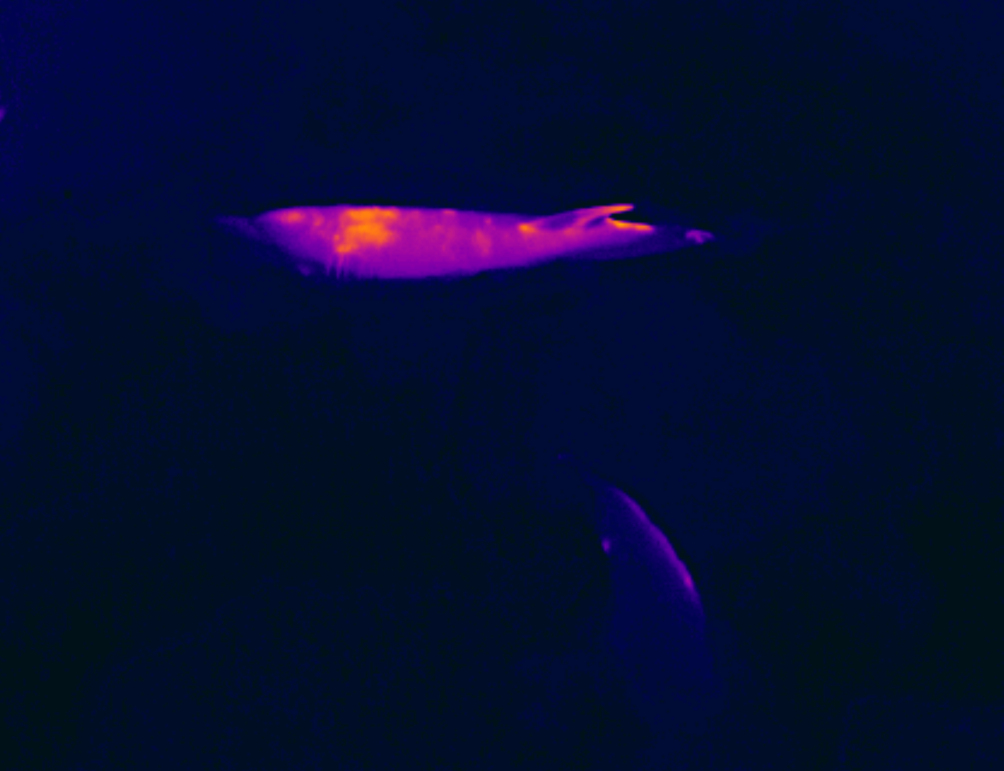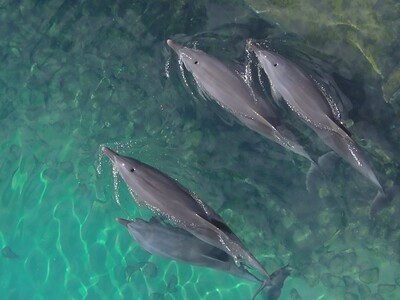
Sci-eye has been involved in supporting and co-supervising Grace Russell through her PhD journey on "Assessing the body condition and migration timing of humpback and pygmy blue whales in Australia", also known as the "Fat Whales Project", under the primary supervision of Dr Daniele Cagnazzi (QLD Department of Environment and Science). A number of publications are coming out of this collaboration (see our publications page).
We are also currently involved in co-supervision and support of two PhD candidates, Charlie White and Anna Christie, under the primary supervision of Associate Professor Guido J. Parra Vergara at Flinders University's Cetacean Ecology, Behaviour, and Evolution Lab. This collaborative research is around developing novel methods to assess health and behaviour of bottlenose dolphins (Tursiops aduncus and T. truncatus).
One avenue of this research is developing drone-based thermal methods to provide rapid health and state assessments of captive and wild dolphins, which forms Charlie’s PhD focus. The aim is to develop rigorous protocols and quantify the precision and reliability of inferring various health parameters, such as levels of stress, heart rate, as well as sickness, metabolic condition and wounds.
The other avenue is focused on assessing behavioural characteristics of individuals within a group, as well as group behaviour, of wild dolphins, which forms Anna’s PhD focus. This research is using our AI workflows to create a largely automated process for assessing inter-group distances and behaviour of the wild dolphins in Coffin Bay, SA. This research will also use a drone-based approach to assess morphometric attributes of individuals in each of the dolphin groups and define leadership and social hierarchy.
Gaining insight into these incredibly intelligent and socially complex creatures is not only fascinating, it provides valuable insight and opportunity to detect early warning signs of environmental stress, like the ‘canary in the coal mine’ for our oceans as they undergo rapid change and increased anthropogenic threats.

